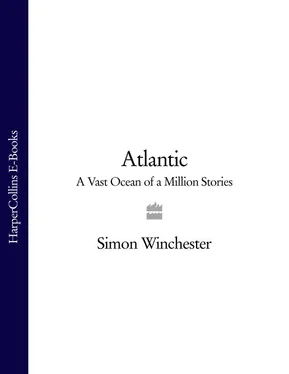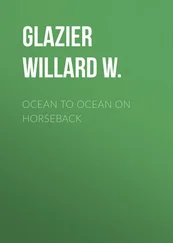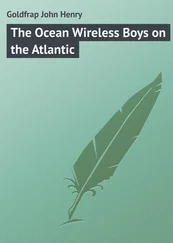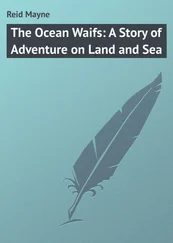The islanders said the small religious ceremony was quite without precedent: in the past it had always been a visiting pastor from Denmark, a thousand miles south, who would come here to bless the islands’ long-drowned sailors; but today made history, it was explained, because for the first time ever the minister was Faroese. In its own gentle and respectful way the dedication service, with its prayers offered in the local tongue, offered an indication of just how these remote mid-ocean islands had drawn themselves steadily away from the benign invigilation of their European motherland. They had gone their own way at last: an island way, remarked one of the congregants. An Atlantic way.
After the service was finally over, I strolled behind the dispersing crowd — and without warning suddenly and terrifyingly reached the cliff edge. The grass cut off as with a blade, and in its place there was just a huge hollow emptiness of wind and space, the black wet walls of a hurtling precipice of basalt cliffs with, crawling almost half a mile below, the tides and currents and spume of the open sea. Hundreds of puffins stood in nooks in the cliff edge, some no more than an arm’s length away, and all quite careless of my presence. They looked like ridiculous, stubby creatures, with that mask-face, chubby cheeks, and a coloured bill that was usually crammed full with a clutch of tiny fish. But every so often one took to the air and soared off into the sky with an easy and contented grace, ridiculous no more.
I must have sat at the edge for a long, long time, staring, gazing, mesmerised. The gale had finally stopped its roaring, and the sun had come out and was edging its way into the afternoon. I was sitting on the cliff edge, my legs dangling over half a mile of emptiness. I was facing due west. Just below me were clouds of seabirds, the gannets and fulmars, kittiwakes and storm petrels, and beside me were the chattering congregations of puffins. Ahead of me there was just nothing - just an endless crawling sea, hammered like copper in the warm sunshine and stretching far, fifty miles, a hundred - from up this high I felt I could have been looking out on five hundred miles and more. There was an endless vacancy that at this latitude, 62 degrees north or so, I knew would be interrupted only by the basalt cliffs of Greenland, more than a thousand miles away. There were no ships’ wakes on the sea, no aircraft trails on the sky - just the cool incessant wind, the cries of the birds, and the imagined edge of the known world set down somewhere, far beyond my range of sight.
And it is very much the same on any Atlantic headland, whether in Africa or the Americas, in the Arctic or from the dozens of other oceanic islands like these, places from where the views are limitless, the horizons finely curved with distance. The view is enough to give the viewer pause: it is just so stupefying, so haunting, the impressions welling up, one after another.
How eternal the ocean appears, and how immense. It is anything but trite to keep reminding oneself how incalculably large the Atlantic happens to be. The big seas are so big that after just a little contemplation of this ocean you understand why it was once perfectly fitting of someone — in this case Arthur C. Clarke, who knew a thing or two about immensity - to remark on how inappropriate it is to call this planet Earth, when clearly it is Sea.
Then again, above all the dominant colour of this ocean is grey. It is grey, and it is slow-moving, and it is heavy with a steady heaving. The Atlantic is in most places not at all like the Pacific or the Indian oceans — it is not dominated by the colour blue, nor is it overwhelmingly fringed with leaning palm trees and coral reefs. It is a grey and heaving sea, not infrequently storm-bound, ponderous with swells, a sea that in the mind’s eye is thick with trawlers lurching, bows up, then crashing down through great white curtains of spume, tankers wallowing across the swells, its weather so often on the verge of gales, and all the while its waters moving with an air of settled purpose, simultaneously displaying incalculable power, and inspiring by this display perpetual admiration, respect, caution, and fear.
The Atlantic is the classic ocean of our imaginings, an industrial ocean of cold and iron and salt, a purposeful ocean of sea-lanes and docksides and fisheries, an ocean alive with squadrons of steadily moving ships above, with unimaginable volumes of mysterious marine abundance below. It is also an entity that seems to be somehow interminable. Year in and year out, night and day, warm and cold, century after century, the ocean is always there, an eternal presence in the collective minds of those who live beside it. Derek Walcott, the Nobel laureate poet, wrote in his famous epic work Omeros of his fisherman-hero Achilles walking finally and wearily up the shingled slope of an Atlantic beach. He has turned his back on the sea at last, but he knows that even without him seeing it, it is behind him all the while and simply, ponderously, magnificently, ominously, continuing to be the sea. The Ocean is, quite simply, “still going on”.
Three thousand years ago Homer introduced the poetic idea of Oceanus — the son of Uranus and of Gaia, the husband of Tethys and father of a score of river gods. The word itself signified a vast globe-encircling river, which the ancients imagined to be rimmed by both the Elysian fields and by Hades. To Homer the ocean was a river that rose far away where the sun sets. It was something totally daunting for Mediterranean sailors who spied its great greyness crashing and storming outside the Pillars of Hercules, at the Strait of Gibraltar. It was known as the Great Outer Sea, and it was a thing hugely to be feared, a world of crashing waters inhabited by terror-inspiring monsters like Gorgons and Hecatonchires, or by bizarrely unfamiliar humans like Cimmerians, Ethiopians, and pygmies. And forever, always going on.
This poetic notion of the sea’s ceaseless activity is one that manages to be at once familiar, comforting, and mildly unsettling. One has a sense that the sea, whatever else it may be, however grey or immense or distempered or powerful, is a permanent presence in the world, whether it is rumbling or calm, storming or drowning. We think of it as an immutable living being, ceaselessly occupied in its unfinishable business of washing and waiting.
Yet strictly speaking, this is hardly true at all. Oceans have their beginnings and their endings, too. Not in the human imagination, perhaps, but in a physical sense, most certainly. Oceans are born, and oceans die. And the Atlantic, the once much-feared Great Outer Sea, the most carefully studied and considered of them all, was not always there, and it will not remain either where it is, or what it is.
For an ocean to begin, a planet must have two elemental essentials. One is water. The other is land. The enormous tonnage of water 4that presently exists has not always been there, of course - but recent research suggests that it came into existence fairly soon after the earth was first coalesced out of clouds of space- borne planetesimals, almost five billion years ago. Studies of zircon crystals found near an iron ore mine in Western Australia indicate that liquid water was on earth just a few hundred million years after the planet was formed. It was extremely hot water, and it had all manner of noxious and corrosive dissolved gases in it; but it was liquid, it sloshed about, it could (and did) erode things that it poured over, and most important of all, it was the undeniable aqueous ancestor material of all of our present seas.
The ocean I gazed down on from the puffin cliffs of Mykines is in essence the selfsame water that was created all those years ago; the principal difference is that while the Hadean sea was hot and acid and incapable of supporting anything but the most primitive of thermophilic cyanobacteria, the Faroese Sea was cold and clean, had been purified and well salted by millions of years of evaporation and condensation and recycling, was rich in chemical ions from all over, and was vibrant with life of great complexity and beauty. In all other respects the frigid waters off the North Atlantic islands and the steaming acid waters of our early and territorially undifferentiated planet of long ago were more or less the same.
Читать дальше












